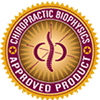Software Support Pitfalls – Chapter 14
Chapter 14
Software Support Pitfalls
Click Here to Return to Previous Chapter
Where Software Support and Training Go off the Rails
Software companies are notorious for overpromising and underdelivering. After you’ve paid for the software and start using it, you realize you’re not getting the support you need.
At Genesis, we’ve identified what the problems really are:
- Having to stop your busy day and call the vendor every time you need support
- Wasting time on hold
- Leaving voicemails and sending emails that disappear into a black hole
- Forgetting that you sent the email or left a voicemail until days later when you need that problem solved again
- No way of knowing if someone is going to get back to you with an answer
- Getting their call when it’s not convenient for you
What You Really Need
What you really need is help when and where you need it. Usually, that’s in a specific part of the system. You need help relative to that problem in that part of the system. You don’t want to search the entire help system just so you can find the answer you need. You need the answer to your specific question right then and right there.
What about new staff members? Who trains them? How often does that happen? You start on a system with the staff you have, and then you get a new team member. Who trains that person? Usually, the person who left is the person who knew the system the best. So how do you get the new staff member into the system and proficient in the system right then and there without you or someone else being responsible to train them?
Genesis provides consistent training. If we didn’t, you wouldn’t get the most out of the system. I hear this all the time about other systems: “I don’t really use all of it. I don’t really know all of it.” This is an important concept. You need to be able to improve how you use the system over time, especially with Genesis. During the onboarding process, it’s easy to get the basic training on Genesis, but there’s so much more to Genesis. We make sure you get more and more out of the system as you go.
The Onboarding Phase
What data can be transferred from other systems? I get this question a lot, so it’s worth taking a minute to go over it. Patient demographics—name, birthdate, phone numbers, email address, mailing address—can be exported from most other systems and uploaded to Genesis.
What cannot come over from other systems? The short of it is that data are stored differently in each system. They include billing and accounts receivable information (although you can add what the patient balance was in your old system), care plan data, images such as X-rays, and so on.
The key to getting really great support with Genesis starts in the beginning with the onboarding process. Transitioning to a new system is never easy. There’s a lot that has to happen. Each new Genesis practice is assigned an onboarding manager who is dedicated to making sure everyone in the practice gets the training they need and that the practice is on track for the go-live date. Transitioning to Genesis usually takes six to eight weeks.
On the first video call, the onboarding manager reviews things like these:
- Practice style, goals, and the go-live date
- Generating logins for each staff member
- System setup such as appointment types, fee schedules, hours of operation
- Mapping out the training steps for each staff member
- Sending test insurance claims
- Applicable third-party integrations such as credit card processing
- Each staff member’s required training tasks and how to use them
- Showing the owner/office manager how to track the staff’s training progress
- Where to find help in the system and how to reach the support team
- The schedule for future onboarding calls
After the Onboarding Phase
Training tasks
Training tasks are role-specific for the practice, which means a CA’s tasks are different from an office manager’s tasks and a doctor’s tasks. Each staff member gets a series of tasks, one at a time. Each task is on a specific part of Genesis they will need to know. The task contains a training video and other explanation content, if needed.
As staff members complete their training tasks, the Genesis team reviews them for accuracy and completion. If there are questions or corrections that need to be made, all of that is logged inside that specific task—sort of like a chat transcript. If screen-share training is needed on that task, there is a link the staff member can click on to schedule the session with the next available Genesis team member. That is a key step in the process that ensures everyone is “getting it” before the go-live date. In some cases, it also helps reassess if the go-live date is still realistic or needs to be adjusted.
You’re starting to see how we’ve eliminated unnecessary phone calls and emails and improved results, accountability, and tracking.
Showing the owner or office manager how to track the staff’s training tasks is the key step in transitioning to this new type of technology. In essence, this step is training the owner/office manager how to manage their staff using Single Point Management for everything in the practice moving forward.
New Staff Members
New staff training is vital to the ongoing success of a practice. Most software companies are unaware when a practice adds staff. At Genesis, we know exactly when that happens. In essence, we treat each new staff member the same way we did in the onboarding process. We proactively reach out and make sure their training tasks are mapped, ensuring a smooth transition to your office.
Keep in mind that since Single Point Management is sending them tasks anyway, they are well aware of the things they need to do every day in your office. All you and your staff have to do is teach them how you would like them to handle each type of task.
Many times, practice owners feel like they are held hostage by their current staff because one or two of them know everything about the software. If one of them were to leave, the practice would be in turmoil. The above ensures that will never happen again.
The Transition Phase
Everybody has a plan until they get hit.
—Mike Tyson
The onboarding and go-live steps are important, but we want practices to get the most out of Genesis. Since it is such a different way of using technology and the system is so advanced, there is always room to improve. In many ways, the onboarding process is like basic training. You have enough to be very dangerous. That’s where most software companies leave you and where practices get hit with reality and need the most support. Not at Genesis. That is where the transition phase begins.
After a practice completes its onboarding phase training and they’ve gone live, Genesis still has an integration manager checking in with you on a weekly basis, scheduling meetings, screen sharing with you and your team, and making sure you’re still getting the most out of the system and applying it to the practice-specific needs.
Live in-person events
Nothing can replace in-person training. At Genesis, we offer in-office training, but for many practices, it is not cost-effective. Live training events bridge the gap and are much more cost-effective. There are no office distractions, just focused hands-on training in a classroom setting.
We realize that many providers are very busy. They have their personal life, their practice, and their travel to events for continuing education and motivation. Adding another seminar, while it is important, can be overwhelming. Many times, Genesis will have a live training event right before or after another seminar that doctors like to attend. ChiroFEST is one example. Genesis clients come a day early for our training event and then stay for ChiroFEST to get the motivation they need—all in one trip.
Live trainings are usually topic-specific with some added time for open questions and answers.
Contextual help
One great way Genesis supports its clients is with what we call contextual help. It’s really frustrating to open a task, make a phone call, or send an email every time you have a question about the system. So we’ve eliminated phone calls. We’ve eliminated emails that are not accountable. We don’t want you to wait on hold or leave voicemails that may never be answered.
When a practice does leave a voicemail or sends an email to Genesis, it automatically opens a support task to the Genesis support team. Genesis clients can see that support task inside their account, so they can be sure we got it. The Genesis team will reply inside the task and include a screen share scheduling link in the task in case the practice needs further clarification.
The practice should be able to find the answer to their question from the part of the system they are in. That means they do not have to go to a general help page and type in their question. If they are using the scheduler and have a question, they are able to get an answer on the scheduler screen. That is where contextual help comes in. That means the help is in the context of the part of the system you are in.
How does that work? When a practice is on the schedule, for example, they see a ? (question mark) symbol. When they click on it, that opens all the support and training content specifically for the schedule, including best practices documentation, videos, and tutorials. In most cases, the answer to the question is right there.
Day-to-day support
Phone calls are useful when there is an emergency such as I can’t log in to Genesis. But if every Genesis client called for every little question, at some point, everyone would be waiting on hold. We ask our clients to make a call only in case of an emergency.
But I want to talk to a person
No problem. The above comment does not mean clients can’t talk to a live person. It means we want to avoid aggravation for clients and triage their questions. When a practice opens a support task with a question, they get an answer quickly in most cases. If the answer is not sufficient, they can click on a link and schedule a time that is best for them for a one-on-one support call. No more emails, no more waiting on hold. Problem solved.
HIPAA Compliance
Another really important reason to open a task rather than send an email is HIPAA compliance. Sending an email about a patient in your practice is a big no-no. Since Genesis is on the cloud, we can actually see your practice and the patient you are referring to when you open a support task inside of Genesis. When a practice opens a support task, they can tie that question to a specific patient so the support team can provide the correct answer for that specific patient. Genesis is fully ONC-certified and HIPAA-compliant. That’s another problem solved and a tremendous liability avoided.
We created a Genesis Nation private Facebook group for Genesis clients only. Here, Genesis shares new features, best practices, and updates. Genesis clients can ask each other questions and collaborate. Many times, this is where we learn about new feature requests and ideas from clients so we can improve Genesis.
What If I Am Not Satisfied with Support?
Inside each task, there is a rating option. If a client is not happy with support, they can give it a low rating. That alerts the entire Genesis organization. This type of feedback is vital to the ongoing improvement of the Genesis support team, processes, and materials. We strongly encourage it.
We also use something called a Net Promoter Score (NPS). It’s a research-based way to get customer feedback. The theory is that the best way to determine if a customer is happy with the service is to ask a standard question—Based on your interaction today, how likely are you to recommend us to your friends on a scale of 1 to 10? If it is not a 9 or a 10, we follow upwith this: What can we do or could we have done to make it a 10? You can use this system with patients, too. Since we’ve implemented NPS, our support procedures have improved drastically. Of course if it’s a 10, we’ll ask who you want to refer to Genesis.
Click Here to Return to Previous Chapter


 Certified by the New Jersey Department of Banking and Insurance
Certified by the New Jersey Department of Banking and Insurance

